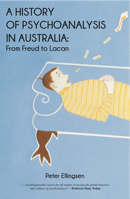How Psychoanalysis works:
 Psychoanalysis is based on the observation that individuals are often unaware of many of the factors that determine their emotions and actions. These unconscious factors may create unhappiness, sometimes in the form of symptoms and at other times as troubling behaviour, difficulties in work and personal relationships, or disturbances in mood and self-esteem. Because these forces are unconscious, advice, reading motivational texts, or will-power, often fail to provide relief. Psychoanalytic treatment reveals how such unconscious factors affect current relationships and patterns of behaviour. It shows how they have developed over time, and it helps the individual to better deal with life’s realities.
Psychoanalysis is based on the observation that individuals are often unaware of many of the factors that determine their emotions and actions. These unconscious factors may create unhappiness, sometimes in the form of symptoms and at other times as troubling behaviour, difficulties in work and personal relationships, or disturbances in mood and self-esteem. Because these forces are unconscious, advice, reading motivational texts, or will-power, often fail to provide relief. Psychoanalytic treatment reveals how such unconscious factors affect current relationships and patterns of behaviour. It shows how they have developed over time, and it helps the individual to better deal with life’s realities.
Talk is the tool but a particular sort of talk, ‘Free Association’. Such speech is a surprise. It cannot be planned but it can be experienced in such a way that it yields liberating, life-changing, insights. The work arises from the particular training and preparation of the practitioner. It is a unique undertaking in which the singular needs of the patient are kept to the fore with the actual desire of the patient paramount.
Psychoanalysis is an intimate partnership in the course of which the patient becomes aware of the underlying sources of his or her difficulties not simply intellectually, but in a way that creates truthful knowledge. The psychoanalytic setting permits the emergence of aspects of the mind not accessible to other methods of observation. As the patient or analysand speaks, hints of the unconscious sources of current difficulties gradually begin to appear – in forms of speech, dreams, repetitive patterns of behavior, in subjects that are hard to talk about, in the ways the analysand relates to the analyst. During the time that an analysis takes place, the patient wrestles with insights gained from the process. Patient and analyst join in efforts not only to modify crippling life patterns, but also to expand the freedom to work and love. Eventually the patient’s life – his or her behavior, relationships, sense of self – change in deep, abiding ways.
This is important because the injuries of childhood and the the life that follows can be crippling. As the writer Doris Lessing notes: “Here I still am, trying to get out from under that monstrous legacy, trying to get free”. There is a wound. It may seem to recover but like a bruise that only slowly deepens into a terrible ache, just when we think we have recovered and forgotten, it is then that the terrible after-effects must be encountered.
This is mental pain and while now commonplace, it was Freud’s revolutionary rethinking of it that has made us aware of what a precarious thing it is to be human. Freud’s intuition that depression is not just a transitory and necessary withdrawal from the world, like mourning, but a tragic attempt to keep alive a lost loved one has reverberated down the decades. He showed that we can only mourn if we have already lost something, and that the truly sad are those who cannot let go. Melancholia – what we now call depression – arises when loss can’t be accepted, and rather than give up the dead, we join them, A melancholic is one who so identifies with a lost love that they become it and then savage themselves in place of it, achieving a hollow revenge. Freud’s insight was that the melancholic, unlike the mourner, maintains loyalty to what is lost. What is needed is not just to give up the dead, but to give up what we represented for them, and this requires a difficult self exploration, uncovering the unconscious assumptions that we have made about how others see us.

